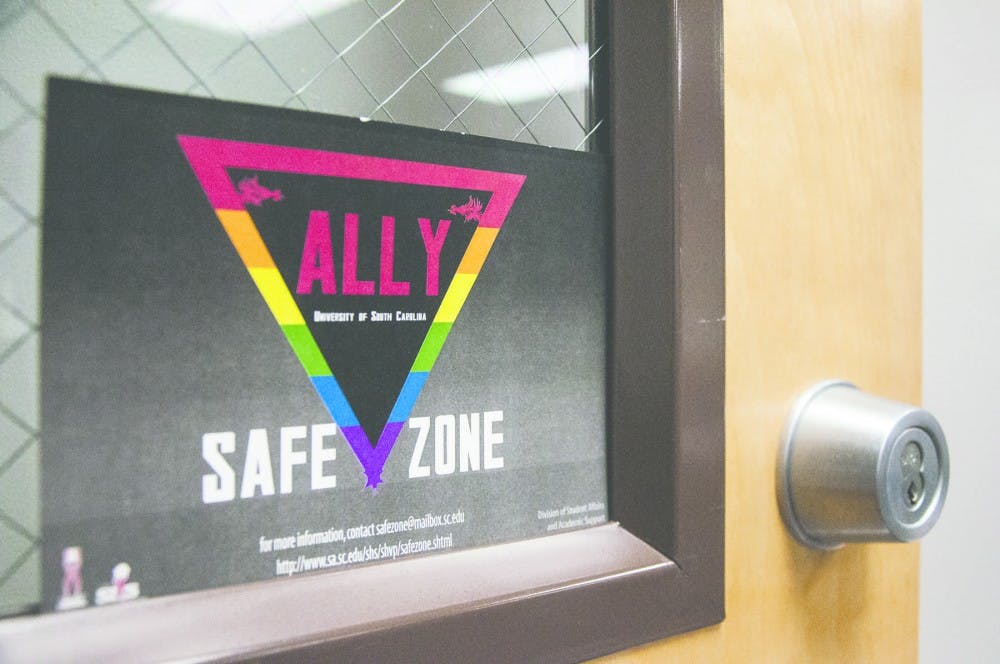Student Senate will debate a bill Wednesday evening which would, if passed, require Student Government members to complete Safe Zone ally training — a program offered by the Office of Multicultural Student Affairs (OMSA) designed to inform students about issues affecting LGBTQ individuals.
Sen. Kaitlin McClamrock, the author of the bill and third-year political science and German student, said that the purpose of the act was, in part, to catch up with other SEC schools.
“One of the things we’re lagging behind in is issues of LGBTQ students on campus,” she said. “Something specifically that we noticed is that the University of Alabama, as well as the University of Mississippi, have a training that’s mandatory for all their student government officials.”
McClamrock is adamant that the current state of LGBTQ awareness among SG members isn’t nearly as widespread as it should be.
“People have trouble remembering the LGBT acronym,” she said, referring to a previous Senate meeting where some members seemed to have a difficult time pronouncing the acronym. “If there’s a lack of understanding there, then imagine just how far the lack of understanding extends.”
The stated purpose of the act is “to ensure that [SG officials] are aware of the resources available to LGBTQ students on campus, and are able to respectfully understand some of the issues facing LGBTQ individuals.”
Each Safe Zone session is approximately three hours long and is “valid” for three years after completion, at which point it must be renewed. Therefore, any SG-involved student graduating within three years would only have to take one Safe Zone training session should the bill pass.
Sen. Byron Thomas of the College of Mass Communications will be voting against the bill. He believes that all of the necessary sensitivity towards marginalized groups is best learned outside of Safe Zone training, by interacting naturally with people from different backgrounds.
“I'm happy we have senators that believe its a good thing for us, as leaders, to make sure we think about others,“ he said, “but I just don't believe we should be required to do something like this.”
Thomas believes that his Christian faith more than meets any requirements that Safe Zone training could set, citing a moral commandment to treat others how they want to be treated. He also questioned the inherent efficacy of the bill to perform its intended purpose.
"Let's be real here: If I don't believe in something, and you force me to do something, do you actually believe I'm going to pay attention or take it seriously?" he said. "No. I'll just sit in the class, do what I have to do to meet the requirements and get out."
McClamrock defended the bill, insisting that mandatory Safe Zone training was not an attempt to change the belief systems of SG members.
“This is not intended to challenge your morals. You don’t have to be an ally if you don’t want to be one. Obviously, I personally feel that we should strive to be allies.” she said. “But that’s not necessarily everybody’s belief, and if that’s not what people feel, they have the right not to feel that.”
The Safe Zone Participant Workbook, the main text used in Safe Zone training programs, includes an “Ally Commitment Pledge,” asking students to sign a series of measures designed to protect LGBTQ students.
Much of it reads as a contract towards positive action: “I am . . . committed to educating myself and others about violence, oppression, heterosexism and homophobia and to combating them all on a personal level.”
Proponents of the bill say that SG members will not be forced to sign the pledge or any other long-term commitment if they feel uncomfortable with it.
Devon Sherrell, fourth-year political science student and president of IRIS, is one such proponent.
“I think the main thing that we want people to know is that Safe Zone ally training is really about sensitivity training,” he said. “It’s not out to convert anyone or to change anyone’s beliefs. It’s really there to be a resource to make campus safer for LGBTQ students.”
The bill, if passed, will be put into effect next fall.

